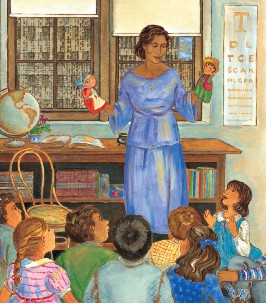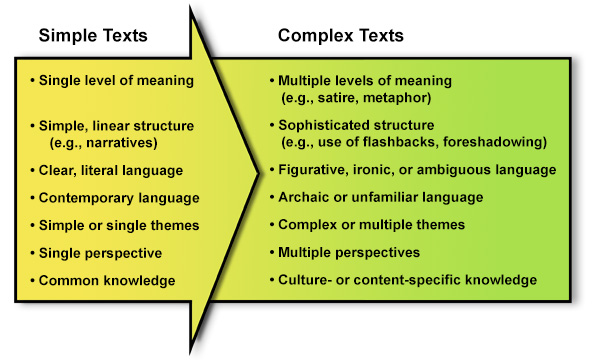
The implementation of the Common Core State Standards brought with it advocates as well as opponents, neither of which are shy in voicing their opinions. Jaclyn DeForge and Kathleen Porter-Magee are two of these people who openly share their thoughts on specific literacy aspects of the Common Core.
Although never explicitly stated by DeForge, it seems that both her and Porter-Magee support the use of complex texts in the classroom. However, DeForge has a problem with the list of titles the authors of the Common Core have recommended for utilization in the classroom. In "A More Diverse Appendix B," she states that many of the titles are old books, and by or about white people. In order to meet the criteria of the Common Core, teachers are using those books from the list in their classroom libraries and instruction, meaning that their classrooms focus little on diversity. When constructing a classroom library and selecting books for instruction, DeForge writes that "(1) Students should have an opportunity to to be exposed to both classic and contemporary literature as well as nonfiction texts, and (2) All students should have the opportunity to see themselves reflected back, as well as to be exposed to cultures that may differ from their own, in the literature and nonfiction texts we study." As a result, she constructed her own list of complex texts which reflect her thinking.
As an inhabitant of the United States, I support DeForge in what she has done. Our society is becoming more and more diverse as I write this sentence. School classrooms are filled with children of many races and backgrounds. In order for children to become accepting of people different than them, books should be introduced that celebrate the many races, cultures, religions, etc. Early intervention in this sense may limit ignorance and stereotyping in the future.
Unlike DeForge, Porter-Magee explicitly states she is pro-Common Core literacy standards because of three things: "(1) The emphasis on building knowledge to improve comprehension, (2) The focus on close reading and using evidence to support answers and analysis, and (3) The push to give all students regular practice with complex texts." It is this third piece about complex texts that Porter-Magee focuses on in "Implementing the Common Core with Struggling Readers." By attending a literacy training workshop, she learned from Doug Lemov that it is not necessary to provide struggling readers with easier, less complex texts. Rather, teachers just need to provide more help to these students in terms of analyzing complex texts. Teachers should create lessons about skills and strategies that are necessary to know when reading a specific text. Additionally, teachers should construct text-dependent questions, while taking into account the barriers these students may face, that guide the struggling readers as they are reading and enhance their understanding.
By analyzing the claims Porter-Magee has presented in her blog post, I have come to the conclusion that any student, no matter how poor they are at reading, can read the same books as the average student; all they need is a little extra help from the teacher. This means that all students in a particular grade could be reading the same book at the same time. The struggling readers would just be more dependent on the teacher than the average or above average readers.

No comments:
Post a Comment